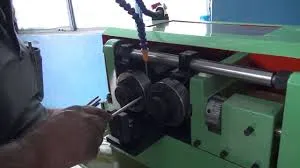
-
 Afrikaans
Afrikaans -
 Albanian
Albanian -
 Amharic
Amharic -
 Arabic
Arabic -
 Armenian
Armenian -
 Azerbaijani
Azerbaijani -
 Basque
Basque -
 Belarusian
Belarusian -
 Bengali
Bengali -
 Bosnian
Bosnian -
 Bulgarian
Bulgarian -
 Catalan
Catalan -
 Cebuano
Cebuano -
 Corsican
Corsican -
 Croatian
Croatian -
 Czech
Czech -
 Danish
Danish -
 Dutch
Dutch -
 English
English -
 Esperanto
Esperanto -
 Estonian
Estonian -
 Finnish
Finnish -
 French
French -
 Frisian
Frisian -
 Galician
Galician -
 Georgian
Georgian -
 German
German -
 Greek
Greek -
 Gujarati
Gujarati -
 Haitian Creole
Haitian Creole -
 hausa
hausa -
 hawaiian
hawaiian -
 Hebrew
Hebrew -
 Hindi
Hindi -
 Miao
Miao -
 Hungarian
Hungarian -
 Icelandic
Icelandic -
 igbo
igbo -
 Indonesian
Indonesian -
 irish
irish -
 Italian
Italian -
 Japanese
Japanese -
 Javanese
Javanese -
 Kannada
Kannada -
 kazakh
kazakh -
 Khmer
Khmer -
 Rwandese
Rwandese -
 Korean
Korean -
 Kurdish
Kurdish -
 Kyrgyz
Kyrgyz -
 Lao
Lao -
 Latin
Latin -
 Latvian
Latvian -
 Lithuanian
Lithuanian -
 Luxembourgish
Luxembourgish -
 Macedonian
Macedonian -
 Malgashi
Malgashi -
 Malay
Malay -
 Malayalam
Malayalam -
 Maltese
Maltese -
 Maori
Maori -
 Marathi
Marathi -
 Mongolian
Mongolian -
 Myanmar
Myanmar -
 Nepali
Nepali -
 Norwegian
Norwegian -
 Norwegian
Norwegian -
 Occitan
Occitan -
 Pashto
Pashto -
 Persian
Persian -
 Polish
Polish -
 Portuguese
Portuguese -
 Punjabi
Punjabi -
 Romanian
Romanian -
 Russian
Russian -
 Samoan
Samoan -
 Scottish Gaelic
Scottish Gaelic -
 Serbian
Serbian -
 Sesotho
Sesotho -
 Shona
Shona -
 Sindhi
Sindhi -
 Sinhala
Sinhala -
 Slovak
Slovak -
 Slovenian
Slovenian -
 Somali
Somali -
 Spanish
Spanish -
 Sundanese
Sundanese -
 Swahili
Swahili -
 Swedish
Swedish -
 Tagalog
Tagalog -
 Tajik
Tajik -
 Tamil
Tamil -
 Tatar
Tatar -
 Telugu
Telugu -
 Thai
Thai -
 Turkish
Turkish -
 Turkmen
Turkmen -
 Ukrainian
Ukrainian -
 Urdu
Urdu -
 Uighur
Uighur -
 Uzbek
Uzbek -
 Vietnamese
Vietnamese -
 Welsh
Welsh -
 Bantu
Bantu -
 Yiddish
Yiddish -
 Yoruba
Yoruba -
 Zulu
Zulu
Thread Rolling Machine for Enhanced Precision and Efficiency in Manufacturing Processes
Understanding Thread Roller Machines An Essential Tool in Manufacturing
In the world of manufacturing, precision and efficiency are paramount. One of the machines that epitomize these qualities is the thread roller machine. This powerful tool is primarily used for producing high-quality threads on fasteners and various components, making it an integral part of industries ranging from automotive to aerospace.
What is a Thread Roller Machine?
A thread roller machine is a specialized piece of equipment designed to shape and form threads on metal workpieces without cutting. Unlike traditional machining processes, which involve removing material to create external or internal threads, thread rolling utilizes a cold-forming technique that displaces material to create the desired thread profile. This process not only enhances the strength of the thread but also provides a smooth finish, reducing the need for further polishing or processing.
The Thread Rolling Process
The thread rolling process involves placing a blank or unthreaded workpiece between two rolling dies that have the negative shape of the desired thread. As the dies rotate and press against the workpiece, the material is deformed and shaped into precise threads. This process can be executed using three methods flat die rolling, round die rolling, and rotary die rolling, each catering to different specifications and applications.
1. Flat Die Rolling This method employs flat dies to create threads. It is often used for larger-sized bolts and fasteners.
2. Round Die Rolling In this method, round dies are used, making it suitable for smaller fasteners and achieving finer thread details.
Advantages of Using Thread Roller Machines
thread roller machine

The advantages of thread roller machines are significant
- Strength Enhancement The cold-forming process not only produces precise threads but also enhances the mechanical properties of the material, resulting in stronger and more resilient products.
- Material Efficiency Thread rolling is known for its material savings. Because it does not remove material, it generates less waste compared to cutting processes.
- Cost-effectiveness The high-speed nature of thread rolling reduces cycle times, contributing to lower manufacturing costs while maintaining quality.
- Versatility Thread roller machines can accommodate various materials, including steel, aluminum, and brass, making them suitable for numerous applications across different industries.
Applications of Thread Roller Machines
Thread roller machines find applications in various sectors. They are extensively used in the automotive industry for manufacturing bolts, screws, and nuts that require high strength and durability. The aerospace sector also relies on these machines for producing components that must withstand extreme conditions. Furthermore, thread rolling is prominent in the production of fasteners used in construction, electronics, and machinery.
Conclusion
The thread roller machine is a cornerstone of modern manufacturing, providing an efficient way to produce high-quality threads. As industries continue to advance and demand for precision-engineered components grows, the importance of thread rolling technology will only increase. With its ability to enhance strength, reduce waste, and improve efficiency, the thread roller machine stands out as an essential tool in delivering effective solutions to meet the ever-changing requirements of production. Whether you're an engineer, manufacturer, or simply interested in the mechanics of fabrication, understanding thread roller machines provides insight into a crucial aspect of the manufacturing landscape.
